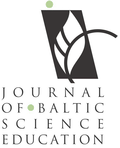THE EFFECTIVENESS OF THE THREE LEVELS OF INQUIRY IN IMPROVING TEACHER TRAINING STUDENTS’ SCIENCE PROCESS SKILLS
| Title | THE EFFECTIVENESS OF THE THREE LEVELS OF INQUIRY IN IMPROVING TEACHER TRAINING STUDENTS’ SCIENCE PROCESS SKILLS |
| Publication Type | Journal Article |
| Year of Publication | 2017 |
| Authors | I Putu Artayasa, Susilo, H, Lestari, U, Sri Endah Indriwati |
| Journal | Journal of Baltic Science Education |
| Volume | 16 |
| Issue | 6 |
| Start Page | 908-918 |
| Pagination | Continuous |
| Date Published | December/2017 |
| Type of Article | Original article |
| ISSN | 1648-3898 |
| Other Numbers | E-ISSN 2538-7138 |
| Keywords | guided inquiry, inquiry levels, open inquiry, science process skills, structured inquiry |
| Abstract | Teacher training students require the mastery of science process skills (SPS) to improve their performance in teaching science. The purpose of this research was to (1) compare the difference in effectiveness between the three levels of inquiry (structured, guided, open inquiry) and the conventional strategy in improving SPS; (2) compare the differences in effectiveness between the three levels of inquiry and conventional strategy in improving the integrated science process skills (ISPS), especially the skills of preparing experimental procedures, collecting data, presenting data, discussing data, and making conclusion. This research was a quasi-experimental: pre-test post-test non-equivalent control group design. The sample of this research consisted of 154 students of Teacher Training for Elementary School Education of University of Mataram. The data were collected by using SPS test and the scoring of experiment report. The data were analyzed by using ANCOVA and the Kruskal Wallis test. The results indicate that there is a significant difference in the effectiveness between the three levels of inquiry and the conventional strategy in improving SPS. Among the three levels of inquiry itself, there is no any significant difference. On the ISPS, the open inquiry has the highest effectiveness and the structured inquiry has the lowest effectiveness. |
| URL | http://oaji.net/articles/2017/987-1513971002.pdf |
| DOI | 10.33225/jbse/17.16.908 |
| Refereed Designation | Refereed |
| Full Text |
